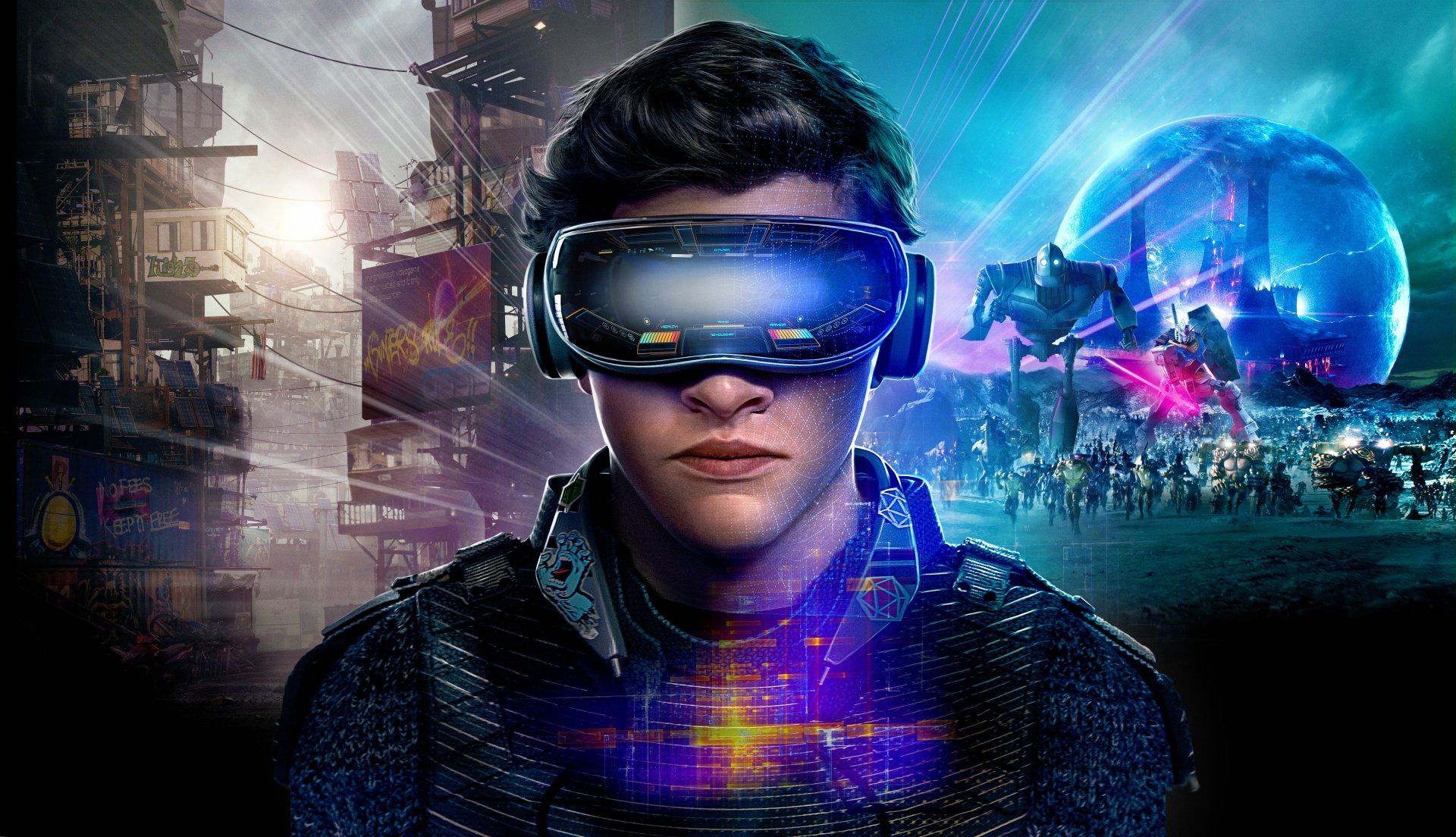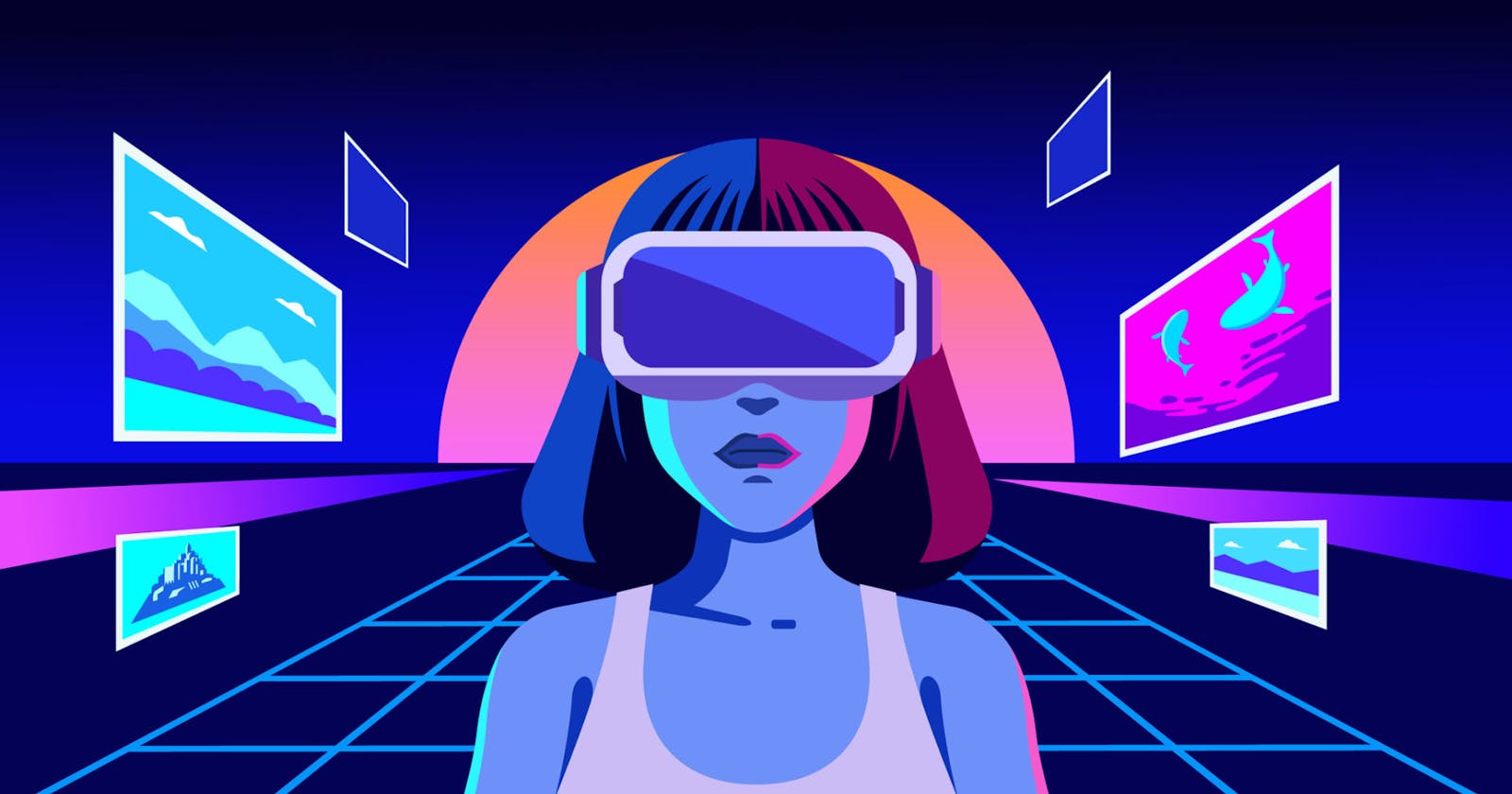"Metaverse isn't a thing a company builds. It's the next chapter of the internet overall."
- Mark Zuckerberg, CEO of Meta
Introduction
The basic story of technology in our lives is that it has given us the power to express ourselves and experience the world more richly. In the early days of the Internet, this primarily meant text you typed on your computer. Then camera phones came along and the internet became more visual. And these days, as connections get faster, video has become the primary way to experience content. We went from the desktop to the web to the phone. From text to photos to videos. But this is not the end of the story. The next platform and medium will be even more immersive, an embodied web where you don't just see it, you dive into the experience. This is called the metaverse.
What is Metaverse?
What if I told you everything you know about life is going to change how your game, how you eat, how you shop, how you hang out with your friends, and even how you go to work?
In 2021, CEO Mark Zuckerberg introduced Meta (renamed Facebook), which brings together our apps and technologies under one new company brand. Meta is focused on bringing the Metaverse to life, connecting people, finding communities, and growing businesses.
The Metaverse is a post-reality universe that combines physical reality and digital virtual worlds in a continuous and persistent multi-user environment. The Metaverse is based on a fusion of Augmented Reality (AR) and Virtual Reality (VR) technologies, enabling multimodal interactions with digital objects, virtual environments, and people. As a result, the Metaverse is a web of connected, immersive experiences and social platforms for multiple users.
To imagine it better we can think of it as Oasis. Oasis is a virtual world described in Ernest Cline's book Ready Player One.

"This is the Oasis. It's a place where the limits of reality are your imagination. You can do anything, go anywhere. Like the Vacation Planet. Surf a 50-foot monster wave in Hawaii, you can ski down the Pyramids, and can climb Mount Everest with Batman. Check out this place. It's a casino the size of a planet! You can lose your money there, you can get married, you can get divorced, you can...you can go in there. People come to the Oasis for all the things they can do, but they stay because of all the things they can be: tall, beautiful, scary, a different sex, a different species, live-action, cartoon, it's all your call. Yeah, that's me...well, that's my avatar, at least until I feel like changing it. Except for eating, sleeping, and bathroom breaks, whatever people want to do, they do it in the Oasis. And since everyone is here, this is where we meet each other. This is where we make friends."
- Wade Watts’s description of Oasis
What triggered Metaverse?
Sci-fi movies, novels, and games triggered the thought of the mass population creating an artificial world. This is where metaverse got started because we started to see it online in the digital version, we started to hear about it before it started happening today. The metaverse was inevitable, it would happen but something accelerated that, and that something was the pandemic.
All of us went through the pandemic, it was huge. A lot of us couldn't go to work, we observed a lockdown which was terrible for many people. Nearly, 168 million students missed out on one year of school. Social functions, concerts, restaurants, and gatherings were all out of the discussion. We were forced to stay isolated, which increased our value for social media. We valued the digital world that allowed us to facetime our family, and play along with friends through the different gaming platforms. We valued more how we looked digitally than how we looked in real life.
When we start valuing how we look on the digital side, we then start moving into a digital future. And that's where Metaverse begins.
Need for Metaverse
Socialization:
Human connections are necessary for people to thrive. After the epidemic, depression rose from 8.2 to 32.8 percent in the US. What was the cause of the increased depression? Social Isolation. Though we were connected through technology it wasn't enough. We wanted to meet our friends, participate in social events, and stay under one roof with them. Metaverse bridges this gap by connecting everyone digitally using customized avatars.
Exceeds limitations of the physical world:
Gathering:
Starting 23rd April 2020, Travis Scott hosted five concerts over three days in collaboration with Epic Games on Fortnite. Which grossed over 20 million dollars and drew 12.3 million players into the virtual concert. It was important because one night on his tour bought him 1.7 million dollars and only held a capacity of 50K people.
In his November 2021 concert, 300 attendees got injured, and 10 died in the stampede. This doesn't only show the limitation of the physical world but also highlights how virtual reality will benefit. Saving lives and sweat of people, and also providing a better-amplified version.
Education:
Education will not only be limited to classrooms or meetings. Imagine not traveling to other nations to live an uncomfortable life away from their family and spend extra money. Students can have a "beyond the doors" experience from their homes. They can visit and visualize historic monuments, perform experiments without wasting materials, and can view and learn about the solar system with a wider vision. They will not only learn through a textbook but through experience.
Fashion:
Be it online or in-store shopping we always worry whether what we bought would fit us perfectly. Through the metaverse, we can not only buy skins for our character we can also buy clothes for ourselves. Our avatar would resemble us in weight, height, and size. We could see how a dress looks on us from every angle and design our clothes how we want them to be. This will help boost the fashion industry to a different level.
Science:
There are limitations on the range and cost used to perform experiments. Having a virtual laboratory that contains an abundance of materials and equipment will change the level at which experiments are performed. It will also kill the ill effects of harmful experiments.
Money:
During a pandemic when the source of money was jeopardized people started finding alternatives to earn. One of the sources of income was through games. Many people earned through streaming on different platforms or through selling their skins or their character online. Axie Infinity is a blockchain-based play-to-earn game that became popular in developing countries such as the Philippines during the Covid-19 pandemic. The life-changing pandemic showed us different ways and perspectives on a way to earn online.
The Downside of Metaverse
Mental Health issues:
Digital use can provide relief and temporary pleasure from life's stresses, but excessive digital use can lead to depression, irritability, stress, paranoid thoughts, physical symptoms, psychosis, and more. It is associated with many mental health issues.
Distorted Reality:
Louis Rosenberg, a computer pioneer who was part of the first augmented reality system for the United States Air Force, and faced with this technology that will be available to anyone, said that it could alter the meaning of reality and distort our interpretation of direct. "Our environment will be filled with people, places, objects, and activities that don't exist, yet seem profoundly authentic to us," the scientist wrote.
Addiction:
Through repetition, the brain and humans eventually rely on the experience to feel better and eventually normal. In other words, individuals have built up an addiction to it, becoming dependent on it both psychologically and physiologically.
Challenges for Metaverse
Better Experience:
If you've seen Ready Player One, you know exactly what the metaverse can do to your mental health. Addiction to virtual worlds can lead not only to psychological problems such as depression, and anxiety but also to obesity and heart problems due to a sedentary lifestyle. We need better equipment and time constraints on how we use it to gain a better experience.
More Availability and Accessibility:
With over 9.2% of people in poverty, everyone can't get high-end devices. We need this at different price points and different quality points. If you need more money you can choose a budget version, if you have lots of money you can get the best possible version through which you can enter the metaverse instantly.
High Demand:
High Demand will come from education it's going to come from us using it and educating others on using it. It can only be achieved by understanding its potential.
Virtual Safety:
Money and Payments:
The metaverse is not limited to games. This will be a huge online marketplace that connects billions of users around the world. With so many currencies and different cryptocurrencies, you need a quick and easy exchange. Not to mention secure transactions.
Identity:
Have you ever wondered if your social media friends are as interested in real life as they are online? The same can happen in the Metaverse as you access it through your avatar. Another issue is proving your identity, as bots can easily mimic your style, date, personality, and overall identity. Different validation methods are required.
Privacy and Data Security:
We often hear stories of some multinational companies committing data breaches. There's more to the Metaverse than just email addresses and passwords. Also saves your actions. In a giant data mine, technology must ensure the privacy and security of every user's data. This requires new security strategies.
Harassment:
In Feb 2022, Nina Jane Patel (Co-founder and Vice-president of metaverse research Kabuni Vertues) reported gang rape of her avatar occurred within 60 seconds of her joining Meta's metaverse platform Horizon Venues. "My
physiological and psychological response was as though it happened in reality," she recalled. Virtual reality has been designed so that the mind and body can't differentiate virtual/digital experiences from the real world. There needs to be a limitation on how we interact, and what words we use.
Law and Jurisdiction:
Social media has already witnessed virtual crimes, and the metaverse has its share of lawbreakers. Rules and regulations that ban accounts are not enough. They need proper laws. But the metaverse doesn't exist in real places. It will be a virtual world that transcends national borders. This means that countries and authorities need to know jurisdictions to ensure a safe place for users.
Conclusion
Like any new technology, the metaverse faces many challenges. But innovators and developers are working around the clock to bring this virtual world to life.
The future is NOW. Are you ready for what's NEXT?

